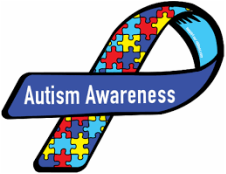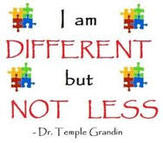10 TIPS TO SUPPORT ME
by Joaquin Fuentes, MD
1. I am not “autistic.” I am first, foremost, and always a person, a student, a child, and I have autism. Do not confuse me with my condition. And, please, do not use the term in a negative or inconsiderate way. I deserve to be respected.
2. I am an individual. Having autism does not make me the same as other people with autism. Make an effort to know me as an individual, to understand my strengths, my weaknesses, and me. Ask me—and my friends and my family, if I cannot reply— about my dreams.
3. I deserve services, just like all children. Services for me begin early. Autism is—or it will be, when recognized—a public health issue in many countries of the world. There are instruments to screen it. They should be applied in the framework of screening for other developmental disabilities. If you start soon, my life will be different! And remember that about one quarter of my siblings will have autism or other problems. Help them; they are an important part of my life.
4. I belong in the health care system, just like all children. Include me in regular health care. The health care system should adapt to me, limiting waiting times and ensuring that I understand what is to be done, by using, for example, easy-to-read materials, pictograms, technologic means, and so forth. Other patients also will benefit.
5. I belong with other children. Do not separate me from them because you want to treat me, educate me, or care for me. I can, and I should, be placed in regular schools and regular community settings, and special support should be provided to me in those places. I have something to teach other children and something to learn from them.
6. I belong with my family. Plan with me for my future and my transitions. I am the one who should decide, and, when my ability to do so is limited, my family and friends will speak for me. No government agency can take the place of my family, and, please, make sure that our society values my family’s generosity when they support me on society’s behalf.
7. I deserve the right to evidence-based services. These may not be convenient or easy, but when I get them, I do better. Do not substitute my educational, health, and social support with medication. I may require medication, and I look forward to new developments in biological treatments, but you must be cautious in their use. Count on me for research ventures; get me involved, with all my rights protected. I also want to help others.
8. I belong in society. Engage me in vocational training. I want to contribute. The services I need during my adult life should be guided by self-determination, relationships, and inclusion in all the activities of my community. Your goal must be to adapt the environment I have to face and modify settings and attitudes. It also will make our society better.
9. I have human rights, and I face discrimination for many reasons. Many of us live in poverty with no community support system. Some of us are immigrants or minorities, including sexual minorities. Keep a gender perspective. Girls and women with autism are often at greater risk of violence, injury, or abuse.
10. I belong in the world. I have a role to play. We, and my legal representatives, want to be involved in policy making, its development, and its evaluation. You need my help to know what should be done. Empower me. Remember my motto: nothing about me, without me.


